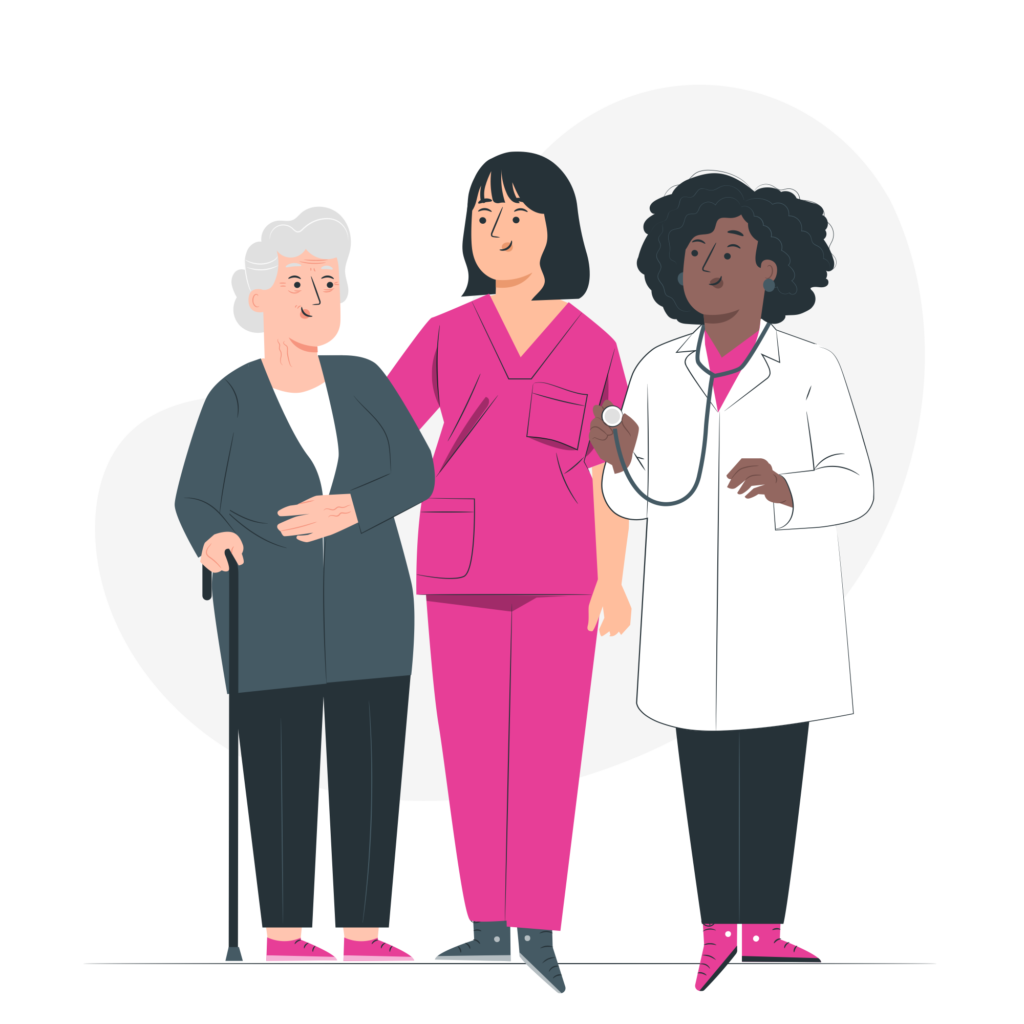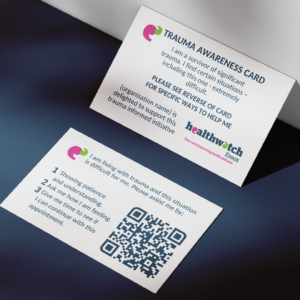information for professionals
What to do when presented with a Trauma Card
If you have been presented with a trauma card, the person you are interacting with is living with the effects of trauma, and the situation you are currently in has generated a trigger for them.
You may not have been aware that they were affected by trauma, and you may not be able to pinpoint what has occurred to cause the reaction. However, neither of these things are your primary concern. What matters is how the situation now progresses, as what happens will likely have a significant impact on the relationship/engagement going forward.



Trauma can be defined as an event, or series of events, which are very stressful, frightening, distressing and/or disturbing. Causes of trauma include domestic abuse, sexual abuse, exposure to crime and bereavement; however, it is very much an individual reaction and there is no exhaustive list of causes.

Trauma can be triggered at any stage in a person’s life and occurs when some kind of external factor causes them to recall the event which was traumatic to them. Again, triggers are very personal and hugely varied, but some common examples can include a smell, visual object or a certain word or phrase. The reactions caused by trauma are equally unique, but often can be likened to the symptoms of a panic attack. The instinct of the individual may well be to retreat, shut down on an emotional and/or communicative level, or to react with a desire to protect themselves. Reactions can manifest on a physical, emotional and psychological manner. The effects have a huge impact on the individual personally, not just in the moment when the trigger occurs but for some time after. They can be hugely debilitating and distressing for the individual concerned.
The most important thing you can do for someone affected by trauma is to offer them time, space and understanding. The behaviours they are exhibiting are symptoms which, at this particular point in time, they are unable to control through no fault of their own. Each person’s trauma is individual and therefore requires an holistic, person-centred approach.Your employer should be able to provide you with support and training around working with trauma, but there are also specific organisations which can provide information:
You can also get in touch with the Healthwatch Essex Information and Guidance Service which is available Monday-Friday, 9am -5pm, to provide information, signposting and support. Outside of these times a voicemail can be left, and you will be called back at the earliest opportunity. We are here to assist individuals living with the effects of trauma with all aspects of their health, care and wellbeing, as well as their friends, families and professionals engaging with them.
Become A Partner
Do you work with people who you think may benefit from the Trauma Card? You can partner with us to have your own logo and branding included on the card and promotional assets, so that you can offer your own version to the people you work with. We have created packages which provide you with digital or printed versions of the card and promotional materials, all of which are possible to generate in just a few clicks!


